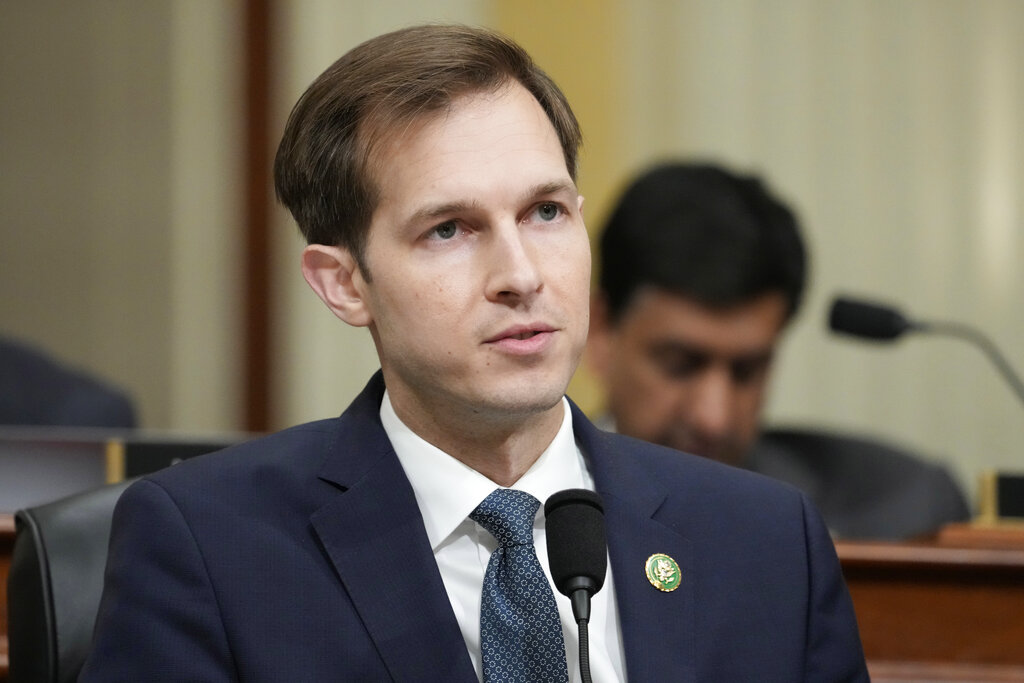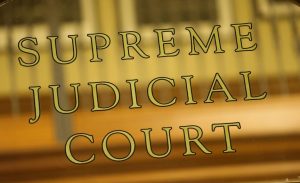
US Congressman Auchincloss blasts Boston City Council for rejecting $13M anti-terror grant
U.S. Rep. Jake Auchincloss blasted the Boston City Council for voting to block a $13.3 million counter-terrorism grant for the metropolitan region amid heightened threats of terror that he says have been “fueled by antisemitism and anti-Zionism.”
Auchincloss, a Democratic Jewish congressman who represents Brookline, one of the nine communities that would have received the funding, sent a letter to Boston City Council President Ruthzee Louijeune on Thursday, urging the body to pass the U.S. Department of Homeland Security grant upon its refiling by the mayor.
While addressed to Louijeune, it was sent to all 13 councilors.
“This funding is crucial to counter-terrorism preparedness in Greater Boston, which is especially salient considering heightened threats of terrorism fueled by antisemitism and anti-Zionism,” said Auchincloss, who helped to secure the grant and is the first federal lawmaker to publicly address last month’s council vote.
Boston and eight neighboring communities in the Metro Boston Homeland Security Region — Brookline, Cambridge, Chelsea, Everett, Quincy, Revere, Somerville and Winthrop — “rely in part” on those Urban Areas Security Initiative funds “to keep residents safe during this period of escalated tension and threat,” he said.
Auchincloss pointed to recent testimony to Congress, where the director of the Federal Bureau of Investigation said he sees “blinking lights everywhere.” The director, he said, also indicated that the FBI is “especially concerned about the possibility of Hamas supporters engaging in violence on the group’s behalf.”
“UASI funding is designed specifically for cities/regions at high risk for terrorist activity, and it has historically been approved unanimously by the Boston City Council,” Auchincloss wrote.
“It is disappointing that its allocation was delayed in December, the same month that the FBI director issued his warning to the nation, and just as Boston was experiencing a surge of incidents of antisemitism,” he added.
The FBI’s concerns, Auchincloss said, align with the UASI priority of “combating domestic violent extremism,” and are reinforced with preliminary data from the Anti-Defamation League, which indicates that U.S. antisemitic incidents have “skyrocketed” since the “Oct. 7 massacre in Israel.”
The ADL has tracked 1,317 protests that included “antisemitic rhetoric and expressions of support for terrorism against the state of Israel and/or anti-Zionism.”
Anti-Zionism is defined on the ADL website as opposition to Zionism, the movement for self-determination and statehood of the Jewish people in their “ancestral homeland, the land of Israel.”
The ADL has also tracked 628 reported incidents against Jewish institutions such as synagogues and community centers, since the Oct. 7 terrorist attack, which sparked war between Israel and Hamas.
“The Israel-Hamas War has heightened our region’s need for counter-terrorism security measures,” Auchincloss wrote. “As antisemitism proliferates, counter-terrorism funding is more pertinent than ever. Impeding its disbursement could undermine the trust of Greater Boston’s Jewish community.”
The Boston City Council voted to block the $13.3 million counter-terrorism grant, via a 6-6 vote, on Dec. 13, preventing release of the funds to the Metro Boston Homeland Security Region.
The vote prompted a firestorm of criticism, including a move by state Sen. Nick Collins to file legislation that would strip the Boston City Council of its public safety grant and public health grant approval.
Related Articles
20 arrested following Boston State of the City address, charged with disorderly conduct
Boston Mayor Wu lays out 2024 vision highlighted by housing, education and protesters
Boston Mayor Wu to put rejected anti-terror grant before City Council again
Boston City Councilor deactivates X after retaking oath of office
North End restaurateurs file new lawsuit against city for ‘discriminatory treatment’ over outdoor dining
Boston, as chair, acts as the fiduciary, or the city tasked with accepting the grant, but the funds are split among the nine communities that make up the Metro Boston Homeland Security Region. The capital city receives roughly half, and the eight neighboring communities receive the other half, two Boston officials have said.
In Brookline alone last year, for example, the funds were used for personnel training, technology upgrades, new public safety vehicles and community preparedness measures, Auchincloss wrote.
Sam Dillon, president of the Boston firefighters union, said the grant funding supports a lot of the fire department’s special operations elements, “which are a fundamental critical portion of the services we provide and our response.”
“We were very disappointed to see the Boston City Council vote against this grant,” Dillon told the Herald. “We’re encouraged that there’s been some changeover on the City Council, and we expect them to take a fresh look at this.”
“This grant needs to get done,” he said, adding that he was concerned about the potential loss of funding as both a Boston resident and firefighter.
Boston Mayor Michelle Wu intends to refile the grant for the Jan. 24 council meeting, her spokesperson told the Herald, but it may not be voted on until after another committee hearing is held on the matter.
The delay has led to an uncertainty in the Metro Boston Homeland Security Region’s budget for fiscal year 2023, the year covered by the grant, a representative said at a Thursday meeting.
The funds were not discussed much otherwise, however, aside from being brought up by Boston City Councilor Ed Flynn, who said he was “very disappointed” in his colleagues, as part of the meeting’s public comments.
“But I’m confident that when we vote again on Jan. 31, we are going to vote in favor of this,” Flynn said.


